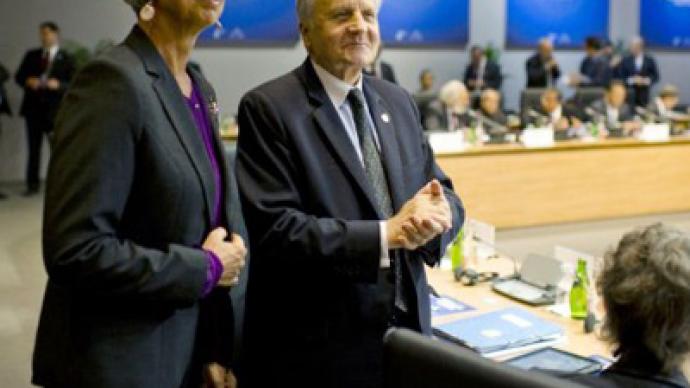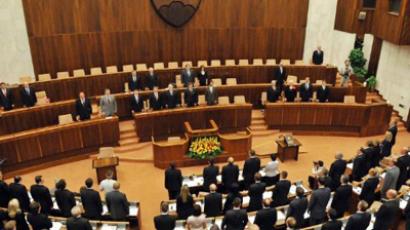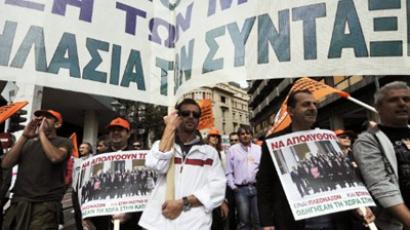World powers press Europe to fix crisis

The world’s leading nations have jointly put pressure on Europe, urging it to deal with its debt crisis in order to avert the risk of a new global recession. The call for action comes as G20 finance ministers conclude their meeting in Paris.
The summit was centered on the Eurozone debt crisis, which has become the focal point of the world’s current economic problems.The draft communiqué, which is to be signed by the major economies’ finance ministers and central bankers, urges the Eurozone “to maximize the impact of the European Financial Stability Facility [rescue fund] in order to address contagion.”"We have heard from Eurozone colleagues the action they are working on, but I think they will have left Paris under no misunderstanding that there is a huge amount of pressure on them to deliver a solution to the crisis," British Finance Minister George Osborne said Saturday, as quoted by the Reuters news agency.According to Osborne, any solution to the Eurozone’s debt crisis would need to involve recapitalizing weaker Eurozone banks, resolving Greece's debt problems and "maximizing the firepower" of the European Financial Stability Facility rescue fund.Earlier Russian Prime Minister Vladimir Putin said that Europe’s governments could solve the problem if they really wanted to. “The crisis is more of a political than a financial issue,” Putin told Chinese state broadcaster CCTV during a visit to Beijing. “According to different estimates, something between $1-1.5 trillion is needed. The number is big, but the Eurozone can handle it.” The G20 finance chiefs have also agreed to back a mandatory capital surcharge on big lenders of up to 2.5 percent, to be phased in from 2016. It is supposed to make sure the world’s top banks have enough capital to withstand market turbulence so that taxpayers will not have to rescue banks again if there is another crisis.
IMF not Europe’s lifeboat?
Although Europe is increasingly looking to the IMF for help in solving its economic woes, with some countries calling on the international body to increase its rescue fund, the US and others have remained firmly opposed.On Friday, US Treasure Secretary Timothy Geithner said the financial resources currently held by the IMF and Eurozone institutions are sufficient enough to deal with the debt crisis."Of course, Europe as a whole has resources available to help with the financial problems,” he told the CNBC television station. “The problems that they are facing there in Europe are complicated to solve, but well within the resources that Europe has."India has pointed out that the resources of the IMF “have already tripled over the last few years,” and urged crisis-stricken countries to look to their own central banks for funding.“Our focus should now be on how to ensure that these resources are quickly mobilized and that the IMF’s lending instruments are adequately flexible,” Indian Finance Minister Pranab Mukherjee said Saturday, according to The Hindu newspaper.Mukherjee also added that it should be ensured that IMF funds are used “only where all other sources have been exhausted, including through central banks and regional safety nets.”According to British Finance Minister George Osborne, "the IMF should remain an institution focused on the global economy and supporting economies around the world, rather than creating a specific vehicle just to assist the Europeans." "Additional IMF resources must not be a substitute for the Eurozone committing its own resources to supporting its own currency," he added.Osborne also said that the UK was ready to provide additional money for the IMF, but not if it was used to set up a special vehicle that would only benefit Eurozone countries.On Friday, the European Central Bank declared it had exhausted its role of “lender of last resort,” saying it is now time for governments to step in."The ECB has done all it could," Jean-Claude Trichet, the ECB’s outgoing head , told the Financial Times newspaper. "Governments are the last backstop."














